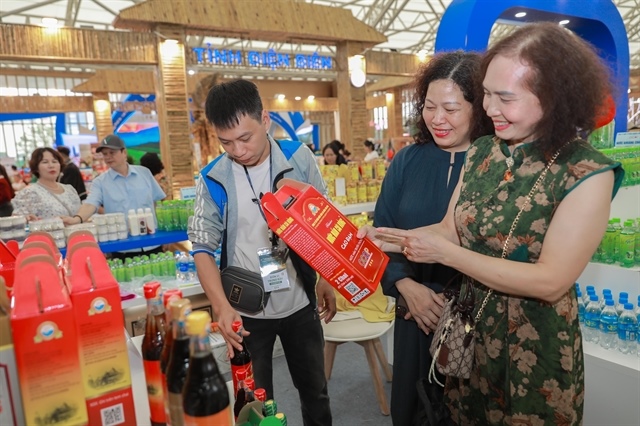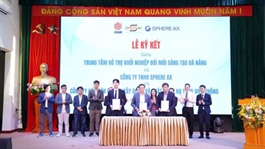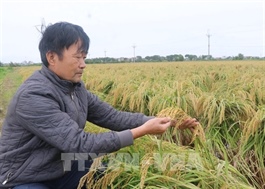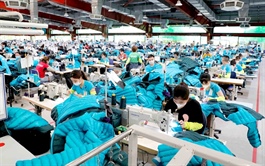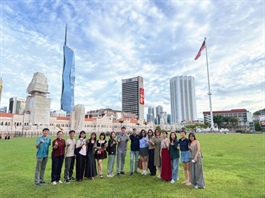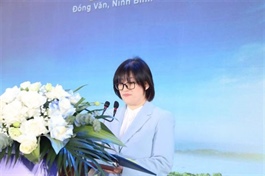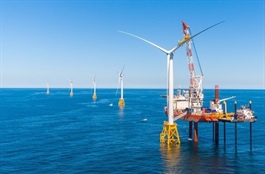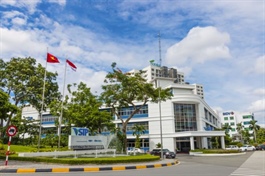Manufacturers lodge diverse EPR policies
Manufacturers lodge diverse EPR policies
Many manufacturers are facing barriers in implementing packaging recycling plans due to weak waste management infrastructure and high costs of recycled materials.
Manufacturers last week sent comments about their issues in recycling packaging products during the extended producer responsibility (EPR) process to the Agribusiness and Environment Working Group of the Vietnam Business Forum.
A representative of the working group said that weak enforcement on waste segregation at source and the fragmented nature of waste collection, which relies heavily on the informal sector, continue to make the process expensive.
“The quality and volume of materials collected fluctuate, creating supply chain instability. This causes a disparity where the cost to collect, sort, and process waste into high-quality recycled materials is higher than the cost of importing new raw materials,” the representative said.
“Markets for recycled materials are immature. Most of Vietnam’s recycling operations are small-scale and use outdated, manual processes. This results in recycled materials of lower quality that cannot compete with the quality and consistency of virgin materials,” he added.
Meanwhile, a report from the Green Growth Sector Committee under the European Chamber of Commerce in Vietnam noted that EPR regulations currently do not have any incentives for producers that use recycled materials. These kinds of incentives would help facilitate the development of the recycling industry at this early stage and create a mechanism for the circular economy, it said. Some other issues in misalignment are being addressed in an anticipated draft EPR decree.
Members offer several recommendations, including the proposal to offer incentives for recycled materials and allow self-recycling efforts to count towards fund contributions to boost related investments.
In September, the Ministry of Agriculture and Environment (MAE) submitted a draft decree on EPR to the Ministry of Justice (MoJ), a key step towards consolidating scattered regulations and ensuring the policy becomes a practical tool for circular economy transition.
According to the draft submission, previous legislation has laid the foundation for implementing EPR under the 2020 Law on Environmental Protection. However, in practice, provisions remain fragmented across multiple documents, making them difficult for businesses to follow and for regulators to monitor effectively.
“EPR is still new to Vietnam, covering a wide range of stakeholders. As a market-based environmental policy, it plays a key role in steering the country towards a circular economy by requiring producers to take responsibility for the post-consumer stage of products,” the MAE noted in the draft submitted to the MoJ.
Given the complexity and wide scope of the policy, it believes that issuing a standalone decree dedicated solely to EPR is essential. The move would unify current rules, enhance transparency, and provide a clear framework for businesses to comply while improving state oversight, the draft added.
Many foreign enterprises are interested in Vietnam’s recycling market potential. Nguyen Thanh Yen, deputy head of Legal Policy at the Department of Environment under the MAE, said, “Implementing this policy creates export advantages and creates a foundation for sustainable business development. At the same time, they will inspect enterprises that have not fulfilled their obligations and impose administrative sanctions on violating enterprises.”
Larry Lee, deputy general director in charge of strategic assets and sustainable development at Saigon Beer-Alcohol-Beverage Corporation (SABECO), said, “Packaging is the starting point in the transformation journey of enterprises. Thus, all of the company’s primary and secondary packaging can be reused or recycled. The unit has also reduced the thickness of aluminium can lid rolls, saving 15 per cent of raw materials and reducing emissions in transportation.”
SABECO is deploying a closed-loop recycling model for glass bottles, aluminium cans, and paper packaging, aiming for all packaging to be designed under a circular model by 2040.
In the paper industry, a field heavily dependent on recycled materials, the story is even more difficult. Hoang Trung Son, director of Dong Tien Paper Company, said more than half of recycled paper materials must be imported because the domestic collection system has high costs and lacks valid documentation.
“One of the major barriers is the regulation on depositing scrap imports from 18-20 per cent, while the procedures are complicated and businesses are susceptible to input VAT collection if they do not have standard documents,” Son said.
The Vietnam Pulp and Paper Association, of which Son is also chairman, proposed a number of solutions, such as tax exemption for collection businesses, allowing recycling units to pay input VAT to collectors, and promoting specialisation of the waste collection system to increase input quality.
Le Viet Dong Hieu, deputy marketing director of Duy Tan Plastic, said the production cost of products using recycled materials is still higher than that of virgin materials due to the complex processing, modern technology requirements, and strict quality control.
“This somewhat limits the green consumption trend. If supported by policies, and taxes, it will also be a strong support to help recycled products compete and attract more users in the market,” Hieu said.
- 16:07 26/11/2025






